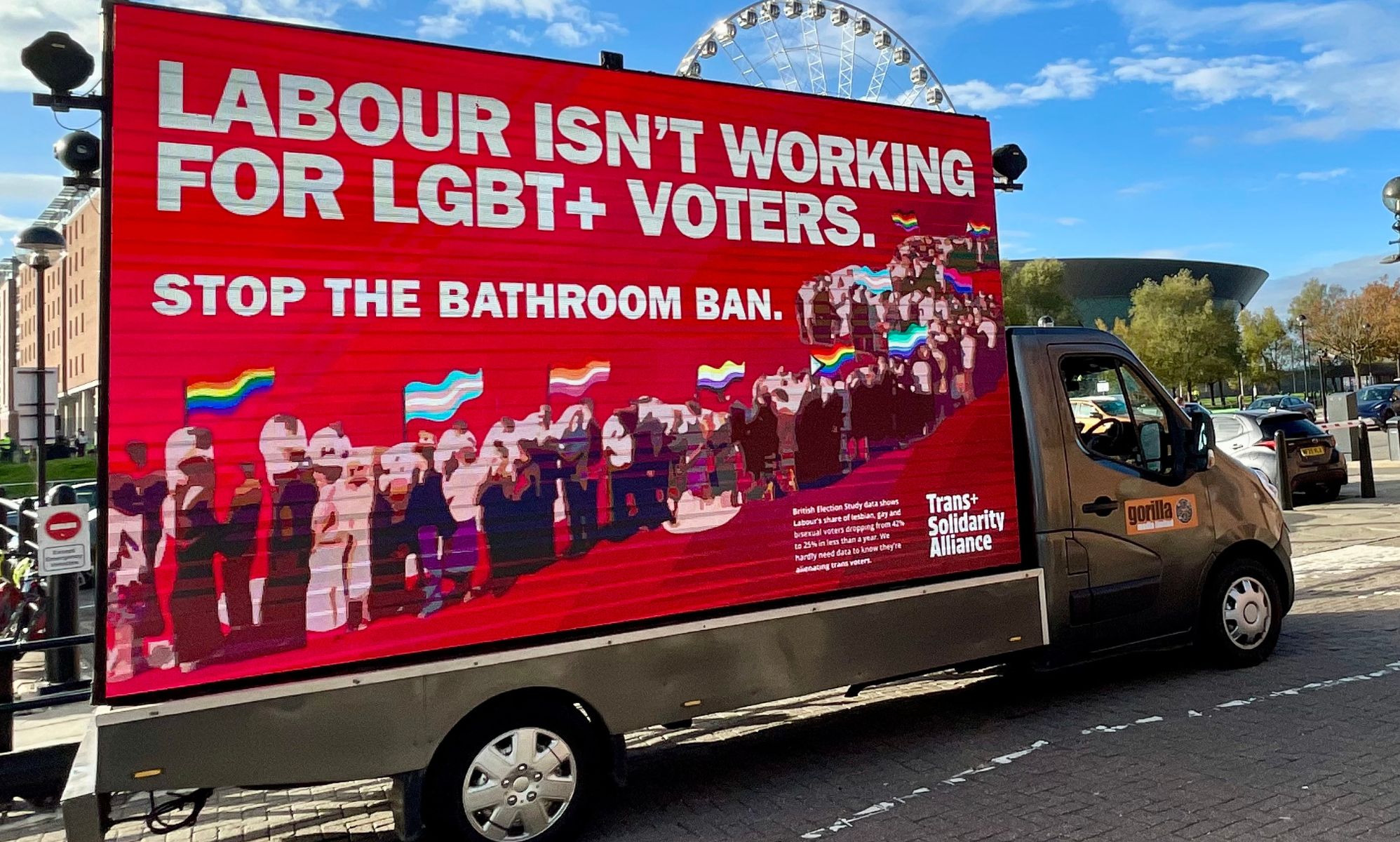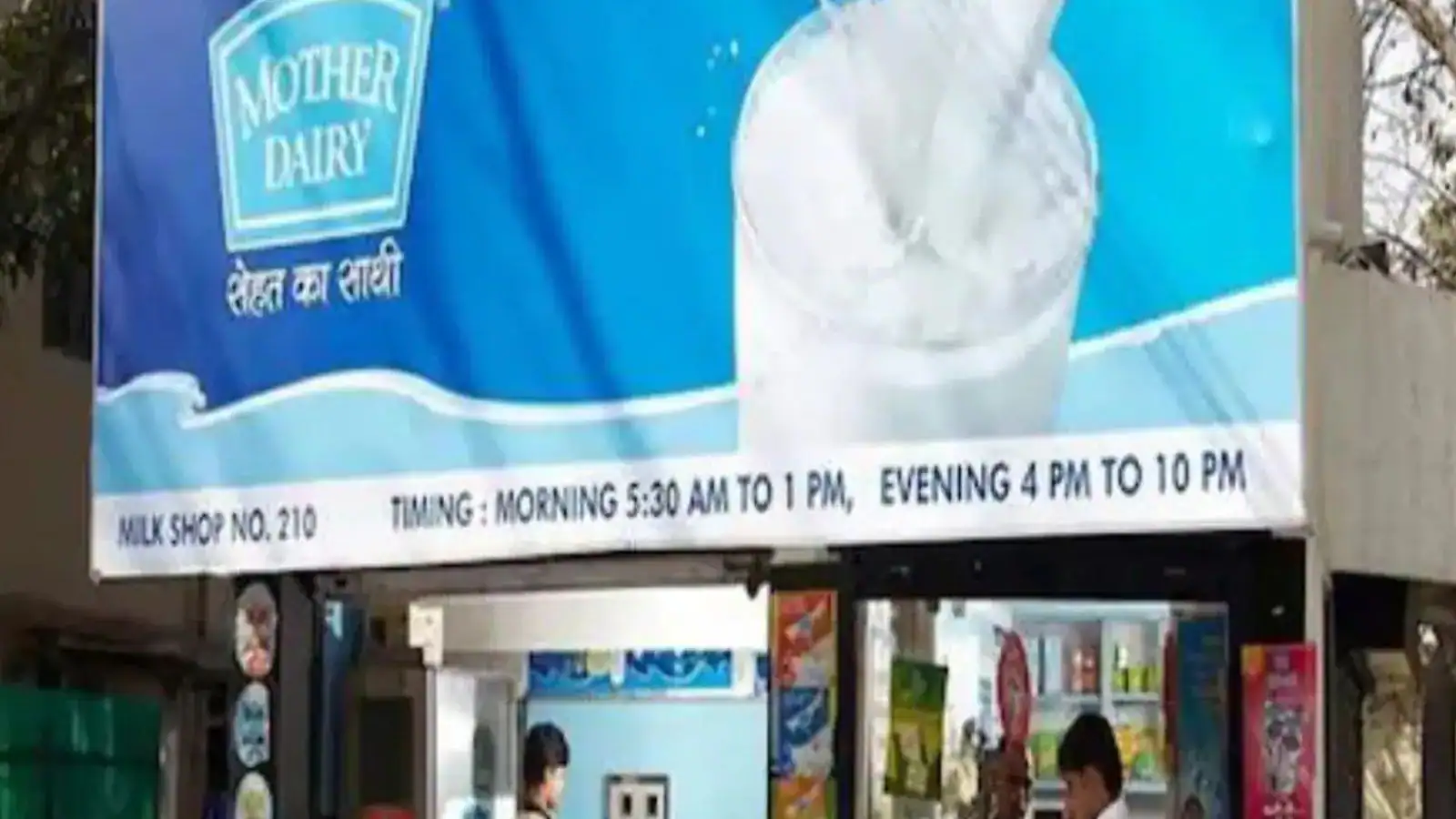By Amelia Hansford
Copyright thepinknews

A van denouncing the Labour government’s stance on trans rights was parked outside the Labour conference this week.
A giant LED sign parked outside the Labour Annual Conference venue in Liverpool voiced trans people’s fears over the possibility of a trans bathroom ban in the UK in the wake of the Supreme Court’s gender ruling earlier this year.
Organised by non-profit, Trans+ Solidarity Alliance, the sign included quotes from anonymous community members and inclusive businesses, all of whom heavily condemned prime minister Keir Starmer’s anti-trans rhetoric.
“Over the last week I don’t believe there has been a day in which I haven’t cried from the worry and anxiety,” one quote, from an anonymous trans woman, reads. “I have felt I can’t go out in the same way I once did.”
It comes amid growing uncertainty and fear after the Equality and Human Rights Commission (EHRC), handed a finalised version of its updated code of practice on single-sex spaces to the government earlier this month.
The UK human rights regulator, which has faced criticism for its policies on trans people, began consulting on updates to the code in April following a Supreme Court ruling that determined the 2010 Equality Act’s definition of ‘women’ referred to ‘biological women.’
While the finalised code isn’t publicly available, sources suggest it will likely recommend banning trans people from using ‘single-sex’ services.
Labour’s continue anti-trans rhetoric, which includes prime minister Keir Starmer saying he no longer believes trans women are women, has caused LGBTQ+ voter support to plummet from 42 per cent to 25 per cent in less than a year.
Anti-trans bathroom ban not ‘operationally viable’ businesses say
Another quote displayed on the van, from a trans man who tried to follow the EHRC’s exclusive advice by accessing a woman’s toilet, reads: “A woman walks in, walks out, and loudly shouts there’s a man in the women’s toilets.”
A major cultural venue in the West of England, meanwhile, wrote: “As a cultural organisation, a hospitality business and as an employer of over 100 people, making any change to who can use which bathroom will not be operationally viable.“
Trans+ Solidarity Alliance founder, Jude Guaitamacchi, accused the Labour government of working against the LGBTQ+ community with the “terrifying” prospect of a bathroom ban.
“We have come to their conference this year to share the stories of the real impact of the EHRC’s proposals to mandate trans exclusion,” Guaitamacchi added.
“The EHRC wants to ban trans people from gendered spaces and services, even when the provider and service users all want to remain inclusive. If Bridget Phillipson approves this, it would devastate trans people’s everyday lives, cause real economic damage and be totally unworkable for all of us – including the businesses and service providers told to implement it.”
The campaigner said that should the EHRC’s guidance be made statutory, it would become “Labour’s legacy on LGBT+ rights for a generation,” urging MPs to stop it before it’s too late.
“They must act now to defend trans people’s human rights – standing up for Labour values and against those who seek to demonise minority groups for political ends.”
Earlier this month, the campaign group shared an open letter signed by over 650 UK businesses calling on the UK government to reject an anti-trans bathroom ban.
Organisations including Ben & Jerry’s, Lucy & Yak, and Lush Cosmetics, argued that guidance banning trans people’s right to use facilities consistent with their gender identity would not only be “incompatible” with their values, but would pose “operation challenges.”
“If enacted, the proposals would place organisations at constant risk of complaints and litigation from multiple directions,” the letter reads. “They seek to force business staff into the unacceptable role of ‘gender police’, told to ask intrusive questions or demand documentation about a person’s birth sex.”



